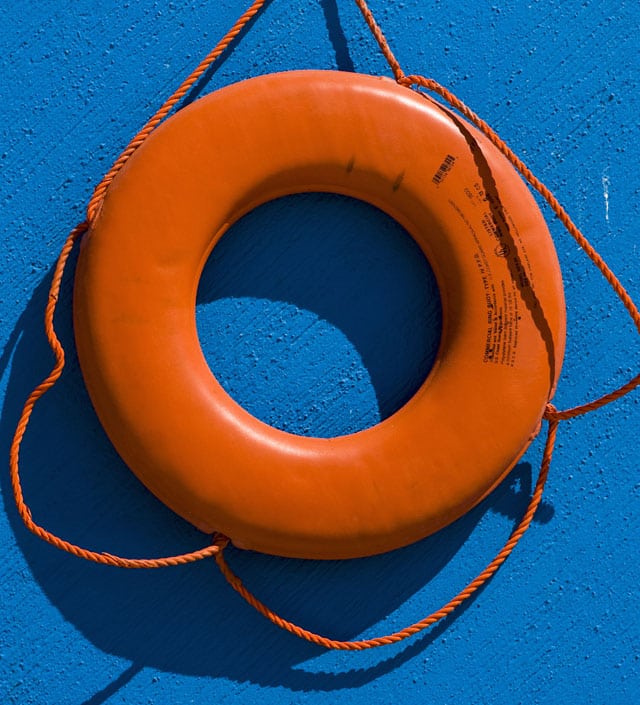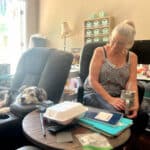On Sept. 28, 2022, Hurricane Ian struck parts of Florida with a vengeance. While we may have sufficient notice to plan ahead for these events, emergency planning for a loved one with dementia can be very complicated. Too many families found out the hard way that hurricane planning (whether evacuating or staying home) is no easy task.
You may be wondering how you can help clients who are caregivers to loved ones with dementia when a hurricane or other catastrophic weather event is forecasted. One would hope that families in hurricane-prone states would have a generator, adequate supplies on hand, and a basic common-sense emergency plan.
In this article, I will cover how advisors can better equip and support their clients for catastrophic weather or natural disasters. You may not think this is part of your job as an advisor, and many may agree with that. However, wouldn’t it be an incredible value-add to the client experience if you addressed these situations with your clients?
All of us living in hurricane-prone states have our own risk threshold when it comes to hurricanes. I’ll stay home until anything above a Category 3 is forecasted. Then it’s time to evacuate. Basic comforts like electricity, air conditioning, a working refrigerator, phone and internet service, and the ability to safely drive where needed (think flooded roads, storm debris) are all compromised with major storms.
Help your clients create an emergency plan
First, having a relationship with clients that goes beyond their portfolio is essential to helping them prepare for a natural disaster. Are you already asking real-life questions like, “Are you a family caregiver?” or “Is your family impacted by dementia?” Knowing your client’s life situation allows you to be a more holistic advisor by using a collaborative approach with other professionals, such as senior or family caregiver consultants.
As you ponder your book of business, do you know which of your clients are caregivers or has a loved one with dementia? Which adult kids will likely be the ones “rescuing” their aging loved ones when there are issues? Which clients are at risk when there is catastrophic weather? Have you discussed their emergency plan? How can you best support them before, during and after a natural disaster?
As an advisor, catastrophic weather conditions or not, it is imperative that you have an understanding of dementia, not only from a liability perspective (should Marvin really be signing those forms?), but also from a customer-service perspective.
Early-stage dementia
For the sake of this article, let’s define dementia through three main stages — early, middle and late.
For each stage, there are different storm safety considerations.
People with early-stage dementia will likely be able to reason and understand storm safety. Their primary caregivers can coach them on storm safety, reassure them they are safe, and help them during the storm by keeping them busy with activities like puzzles, reminiscing (sharing stories about the “good ol’ days”), looking at pictures together, singing, dancing, and keeping them entertained until the storm passes.
If the decision is made to evacuate, having the person with dementia choose items from the house to bring along can be of great comfort. Persons with dementia do not adjust well to changes in their environment. Family caregivers should anticipate more confusion and disorientation during this time. The calmer the caregiver is, the calmer their loved one will be, which is true with any stage of dementia.
Middle-stage dementia
Persons with dementia in the middle stage will be harder to redirect and reassure. These are people who are much more confused, disoriented, likely to wander or pace, and sundown (become increasingly more agitated, restless, paranoid, anxious, and confused in the afternoons and evenings). If the decision is made to stay home, the more the caregiver can maintain as consistent a schedule as possible, the better.
Hurricane Ian hovered over southwest Florida for several hours, destroying everything in its path. Electricity was instantly knocked out and homes were damaged and many destroyed. Can you imagine being a caregiver to a loved one with dementia in that situation?
Those who had generators had it much easier after the storm had passed. Having no air conditioning and electricity is difficult in any situation but persons with dementia who already are struggling with being able to communicate their wants and needs have it much harder when they also don’t understand why they are living in the dark (hurricane shutters keep a house very dark), or why a tree is now in their living room, and their behaviors increase when they are hot or otherwise uncomfortable.
Caregivers can do their best at trying to keep their loved ones occupied during the storm and the many days afterward, when there is no power, no phone service, streets are flooded and driving is impossible. That said, most caregivers to loved ones with dementia are already overwhelmed and burned out — not sleeping, not taking care of themselves properly, wrought with anxiety and wondering how they can make it through each day. This is typical for a caregiver even without the added exhaustion that comes from a major storm with damage and flooding.
Those who evacuate have their own challenges, but at least they are safe. Dementia patients do not tolerate sudden changes to their environment well. The more familiar the primary caregiver can make their temporary living arrangements, the better. Bringing familiar items from home like a blanket, keepsakes, pictures, or hobbies like sewing or woodcarving, will help them adjust better. And, again, keeping the familiar routine as much as possible can be helpful.
Late-stage dementia is especially challenging
Late-stage dementia is an entirely different consideration. Persons in late stage are bed bound and in need of total care, 24/7, for their every need. Often, their families are providing much of the needed care, along with companion care. Home care companies don’t usually send their caregivers out to clients in their own homes during a major storm and it often can take several days for the home care company to provide companions again, depending on the damage to their own homes.
It is difficult to evacuate a loved one who needs a hospital bed, machines to lift them (like a hoyer lift), may have a catheter or other medical devices, is likely on pureed food, and needs to be repositioned every one to two hours to avoid pressure sores from forming. Your clients in this situation should be on a hurricane evacuation list (many facilities offer this if they have space).
Is the primary caregiver physically able to get to the store and pharmacy to stock up on all the supplies needed for at least two weeks? How will they carry/transport all of the supplies if they are also frail, elderly, or ill? Does your client have a generator? Are they capable of getting (filling and carrying) the gas cans needed for some generators? If they have a portable generator, can they get it out of the garage and get it started?
If your client is the primary caregiver to a loved one with dementia and they are not utilizing any home support services, they likely couldn’t leave their loved one home by themselves to even get supplies.
Review their storm safety checklist
So how can you, as their advisor, help support them? When major storms are forecasted, you can reach out to them and review a “storm safety” checklist. You should verify that you have their trusted contact’s information on file and ask about their plan for food, water, medication, incontinence supplies (adult diapers, gloves, body wipes to keep them clean), flashlights, batteries, backup communication system and other necessities.
If you don’t already have a relationship with their trusted contact or son/daughter, this is a great way to develop the relationship and team up with them to help make sure your client is as safe as possible during the storm. You can help them with evacuation plans (hotels, VRBO or Airbnb, flights) and transportation services. You can ship needed supplies.
Encourage your client to take pictures or videos of their home and its contents in case it is destroyed and send the pictures or video to you for their file. Does your client (and do you) have copies of their important documents? And don’t forget their pet. You can help find foster care for their pet and make sure their pet has needed food and supplies.
Help them recover after the storm
After the storm has passed, you should continue to support them. Keep trying to reach them until you make contact. It can take weeks before power and phone service is restored after a natural disaster. If there was storm damage, you can help (or find someone who can) file insurance claims and help get credible repairmen in place. You can also ship (provided streets are drivable) additional needed supplies.
And again, the more you can partner with your client and with their trusted contact/family member, the more you will differentiate yourself from the advisors who never even thought about how they can help their clients with storm safety.
Annalee Kruger is president of Care Right Inc. (a nationwide senior care planning/aging plan consultant and virtual patient advocate) and co-president of Plan4LifeNow (an education and financial planning consultancy teaching financial advisors to become Elder Planning Specialists). As a virtual and nationwide senior care planner and senior advocate, Annalee teaches advisors and families how to boldly advocate for their clients and loved ones. Her book, “The Invisible Patient: The Emotional, Financial, and Physical Toll on Family Caregivers,” is available on Amazon and Audible.







